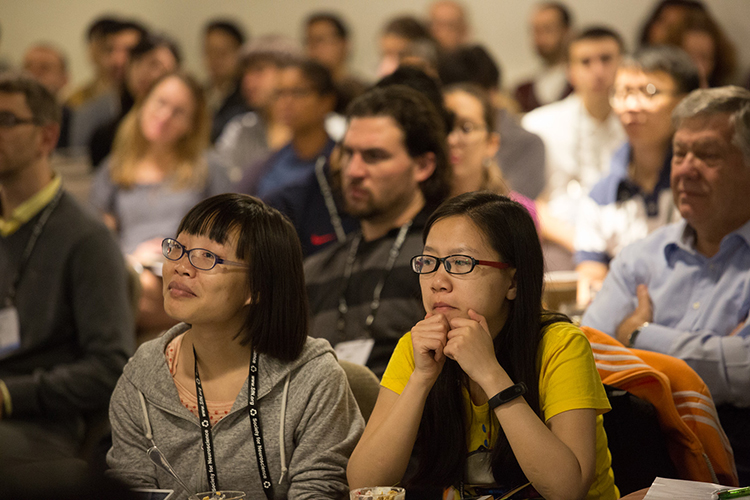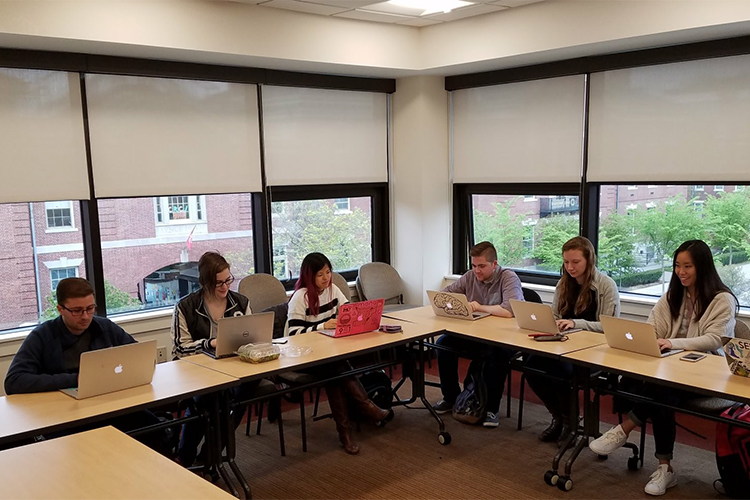
Global Collaboration Bolsters Support for Research
The Society for Neuroscience and other leading neuroscience organizations have joined together to provide nearly €115,000 ($131,000) in grants to neuroscience groups across the globe over the past two years to help grow local support for brain research.
As part of a Global Advocacy Initiative led by the International Brain Research Organization (IBRO), Global Advocacy Seed Grants are awarded to local organizations in Africa, Asia Pacific, and Latin America — to facilitate support and resources for brain research. These seed grants fund local events and activities that increase awareness of neuroscience in ways that are culturally sensitive and regionally relevant.
Founding Partners
- International Brain Research Organization (IBRO)
- Australasian Neuroscience Society (ANS)
- Dana Foundation
- Federation of European Neuroscience Societies (FENS)
- International Society for Neurochemistry (ISN)
- Japan Neuroscience Society (JNS)
- Society for Neuroscience (SfN)
Scientists around the world recognize the importance of global collaboration that adapts to the specific needs of an area. “What works in the U.S. will not work in the Congo,” IBRO President Pierre Magistretti said. “What works in France maybe doesn't work in Italy. You really need to have the local action, maybe a global view, but local action, tailored to the needs, the culture, the means of each region.”
The first two rounds of grants were awarded to 25 local organizations in 19 countries, with amounts ranging from €3,300 to €5,000.
Mongolia, which has been a democratic republic for just 25 years, currently lacks educational resources and support for neuroscience. The Mongolian Neuroscience Society (MNS) used its grant to fund local events that would spark the public’s interest in and support for brain science. The group held a free, two-day event at the Mongolian National University of Medical Sciences (MNUMS), offering lectures, educational stations, games, and consultations for members of the public.
“This special event has greatly contributed to the development of brain science in Mongolia by giving an opportunity for public to attend lectures about neuroscience in a plain language and to see how brains process information and react to different stimuli in education stations, and to talk with specialists about their concerns,” a statement on MNS website said.
In addition, MNS organized an unprecedented meeting with key government officials where it emphasized neuroscience as a leading discipline of scientific research worldwide and that the country had an urgent need for neuroscience research and education. In recognition of this, the MNUMS president announced at the meeting that neuroscience would now be offered in the official university curriculum as an elective subject.
Other examples of projects funded by the grants include:
- The launch of Loligo Educaion, an open-access website in Spanish to support teaching neuroscience in Chilean schools;
- A conference advocating for brain awareness throughout Somaliland, where an estimated 42 percent of people are estimated to have a serve mental health disorder; and
- Efforts to increase legislative support in Mexico for the neurological disease spinocerebellar ataxias type 7 (SCA-7), a rare disorder with a staggeringly high prevalence in Veracruz.
The future of neuroscience research depends on global advocacy. Collaboration between developed and developing countries will lead to greater advocacy success.
“The most important thing is to outreach people,” said Federico Bermudez-Rattoni, professor at the National University of Mexico. “Outreach politicians in order to convince that we are doing important work and work that can be very helpful for the society.”
The 15 percent increase in grant application submissions for the program’s second year demonstrates a clear interest in and need for increased funding. The application process for 2017, which closed in May, was also expanded to include European countries challenged by a lack of resources and support. Grantees will be announced at Neuroscience 2017 in Washington, DC.



















